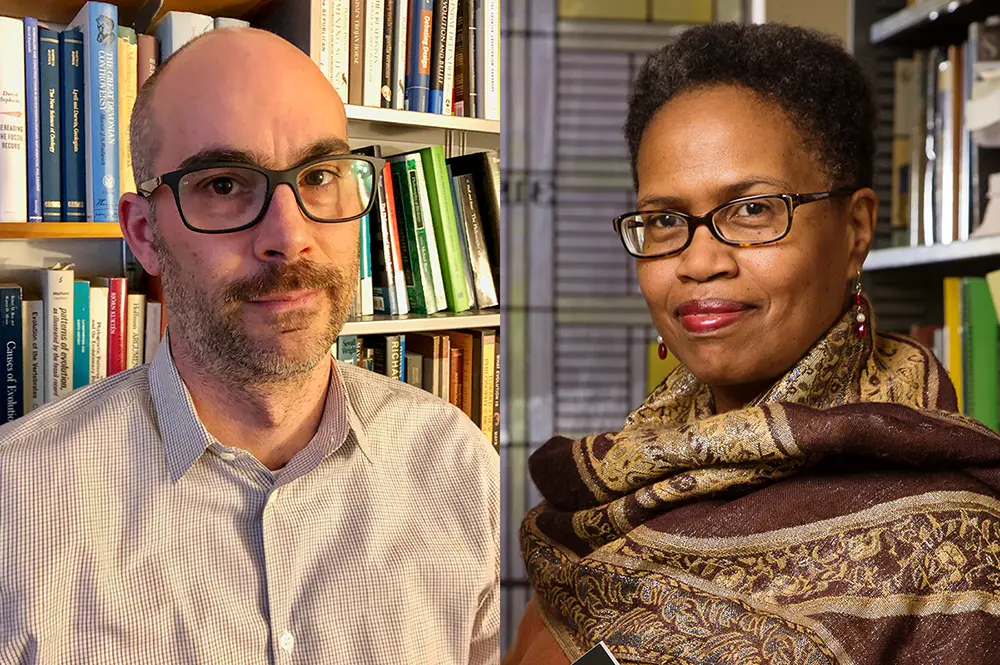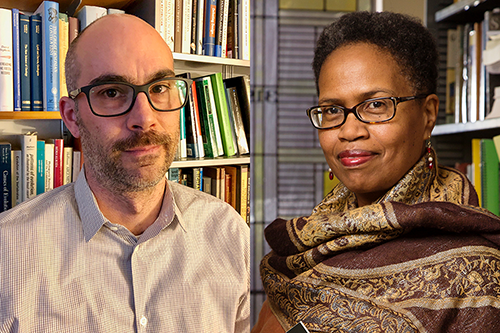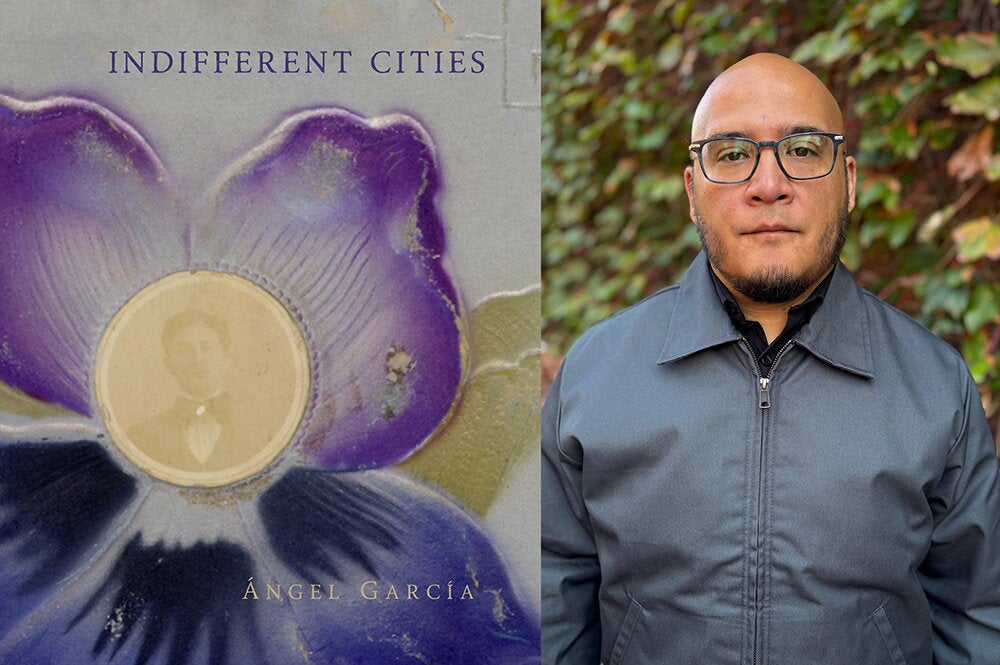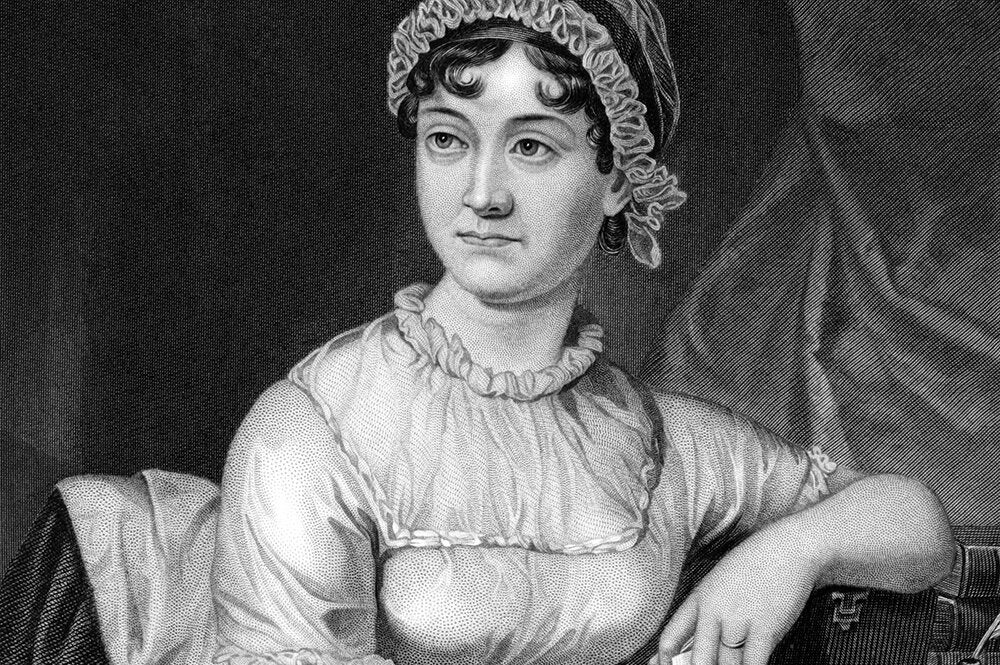

(Photos by Teri Chettiar and L. Brian Stauffer.)
Two professors at the University of Illinois at Urbana-Champaign have been awarded a 2020 Guggenheim Foundation Fellowship.
This year’s fellows are Janice N. Harrington, a poet and professor of English; and David Sepkoski, a professor of history.
They are among 175 writers, scholars, artists and scientists from the U.S and Canada chosen “on the basis of prior achievement and exceptional promise,” according to the John Simon Guggenheim Memorial Foundation’s news release. The winners were selected through a rigorous peer-review process from nearly 3,000 applicants.
Harrington is a poet and professor of creative writing at Illinois. Her writings have ranged from poems about African American family life in the South to poems about institutionalized aging, the painter Horace H. Pippin, African American folk art and prairie ecology. She has published three books of poetry: “Primitive: The Art and Life of Horace H. Pippin,” “The Hands of Strangers” and “Even the Hollow My Body Made Is Gone.”
“My new project, funded by the generosity of the Guggenheim Foundation, was inspired by the ‘yard shows’ – found objects, lawn ornaments, birdhouses, fountains, ponds and personal symbolism – that fill the yards of some African Americans, typically in the South, but that I have also seen in the Midwest,” Harrington said. “Their wild creativity, the constant making and unmaking, the fierce commitment to their personal artistic choices, the defiance of racial stereotyping and the absolute refusal of despair inspire me as a poet. I find myself captivated by asking how African Americans shape, use and transform space. I want to write poems that investigate the cultural, natural, and social spaces that have shaped African American life in the Midwest.”
Harrington will use her fellowship tenure to study space, place and African American expressiveness in the small towns and midsized cities of the Midwest. Her work will take her to once-sundown towns, the salt mines of southern Illinois, early black pioneer settlements and a variety of Midwestern archives.
In addition to her writing and scholarship as a poet, Harrington has written award-winning children’s books. Her latest children’s books are “Buzzing with Questions: The Inquisitive Mind of Charles H. Turner” and “Catching a Storyfish.”
Sepkoski is the Thomas M. Siebel Chair in History of Science at Illinois. His research deals with the interaction between science and society, with a focus on the biological and environmental sciences. His book “Catastrophic Thinking,” on the history of scientific ideas about extinction and the value of diversity, will be published this summer.
Sepkoski will use his fellowship to work on a book about scientific debates in recent decades over the biological and genetic basis for human nature. The book will span from the 1970s controversy over sociobiology – a theory that explains human abilities as primarily determined by evolution and genetics – to the decoding of the human genome.
“I've long been fascinated by scientists’ own accounts of the ‘political’ nature of their work,” Sepkoski said. “During the 1970s, heated debates about the validity of pursuing biological or genetic explanations for behavioral traits like intelligence, altruism, monogamy, etc., captured wide public attention and informed broader cultural conversations about race, gender, and social equality in the U.S. and elsewhere.
“Strikingly, proponents of sociobiology and other forms of biological determinism often defended their conclusions about innate human differences in individuals or groups as being objective or neutral, while characterizing their scientific critics as being motivated by politics or ideology,” he said. “But if the history of science tells us anything, it is that scientific theories often have considerable social and political impact, and scientists cannot detach themselves from broader political commitments, especially when discussing human nature.”


